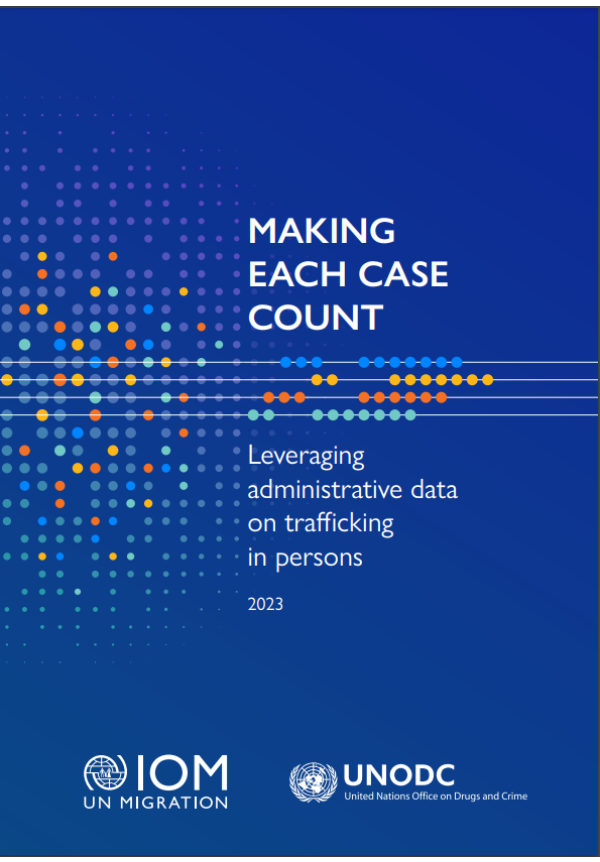
Making each case count: Leveraging Administrative Data on Trafficking in Persons
Jointly developed by IOM and the United Nations Office on Drugs and Crime, this guidance manual aims to support the efforts of governments and other stakeholders in improving data collection, management, sharing and use, so that more high-quality data can be leveraged to inform policy and programming. While the manual will be useful for all stakeholders dealing with administrative data, it specifically targets central government agencies or other organizations with a coordinating role at the national level that uses administrative data on trafficking in persons (TIP) from multiple sources to produce evidence in addressing TIP. These can be national rapporteur’s offices, ministries, agencies coordinating the national referral mechanism or national statistical offices, among others. The manual outlines useful considerations, describes the pitfalls to avoid, lists best practices and gives concrete examples to help establish (or improve) all data-related processes for national TIP administrative data. Importantly, it also provides direction on how to use the working version of the new International Classification Standard for Administrative Data on Trafficking in Persons, most effectively ICS-TIP. The ICS-TIP, the companion publication to this manual, establishes a new model of classification for key indicators related to TIP administrative data.
Read More
- List of figures
- List of tables
- List of boxes
- List of abbreviations
- Glossary of terms used in the manual
- Acknowledgements
- CHAPTER I: PURPOSE AND SCOPE
- CHAPTER 2: SUMMARY
- Why are administrative data so important in the fight against trafficking in persons?
- Obstacles to the production of high-quality administrative data
- Summary of contents
- CHAPTER 3: DATA COLLECTION
- The need for administrative data on trafficking in persons
- Common challenges facing data-sourcing agencies
- Facilitating the sourcing of administrative data
- Ethical considerations and data protection principles
- Encouraging sharing of administrative data by fostering an equitable,
- multistakeholder data ecosystem
- Improving capacity to generate high-quality administrative data
- CHAPTER 4: DATA GOVERNANCE
- General objectives of data governance frameworks and procedures
- Roles
- Rules
- Setting up a data governance framework in an inter-agency environment
- CHAPTER 5: SHARING AND DE-IDENTIFYING ADMINISTRATIVE DATA
- Privacy issues with data sharing and publishing
- What are personal data?
- What are de-identified data?
- Methods of de-identifying data
- Due diligence considerations for sharing or publishing data
- CHAPTER 6: ADMINISTRATIVE DATA ANALYSIS AND PRESENTATION
- Overview of the trafficking in persons (and related) data evidence landscape
- Useful considerations and best practices for the presentation of administrative data to various audiences
- ANNEXES
- Annex 1. Legal bases for processing personal data in the United Kingdom
- Annex 2. Different data, different approaches
- Annex 3. Two examples of data pipelines
- Annex 4. Tips on encryption
- Annex 5. The three types of metadata
- Annex 6. The Microsoft/IOM synthetic data algorithm
- Annex 7. Estimating prevalence using multiple systems estimation
- Annex 8. Concrete examples of data presentation